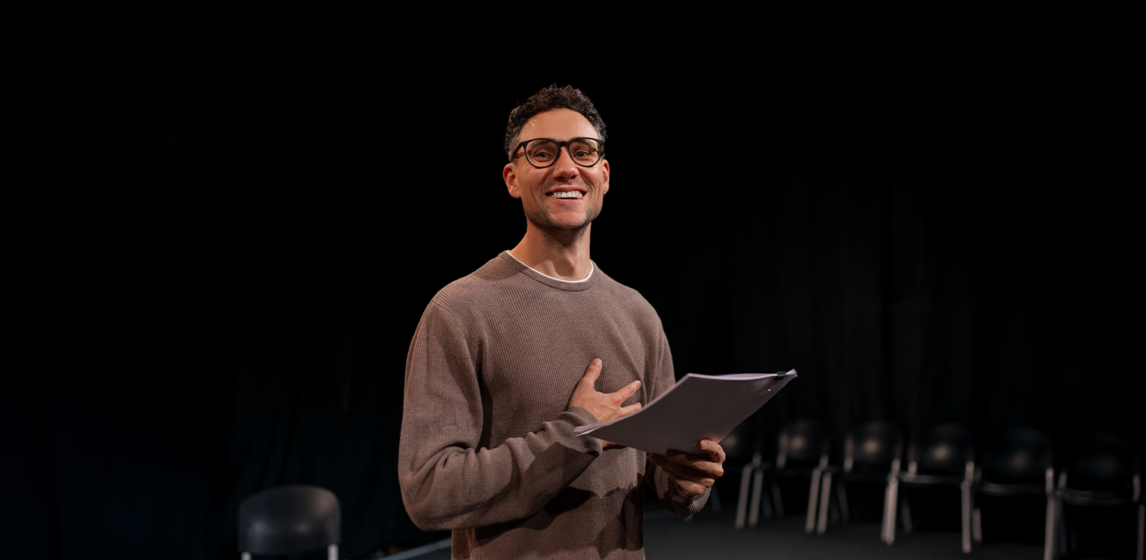A deeper response to AIDS
 Brad M. Griffin | Dec 6, 2006
Brad M. Griffin | Dec 6, 2006
Photo by Ban Yido
This year for World AIDS Day, we asked Dr. Stephanie Smith (MCS Regent College, PhD University of St. Andrews), Adjunct Professor in Fuller’s School of Theology, to answer some common questions faced by youth ministries discussing and responding to the AIDS pandemic. Over the past two years, Dr. Smith has been researching and writing on the church’s response to HIV/AIDS in Africa. Over the course of her research she has interviewed pastors, theologians, and primary care-givers in East Africa and Sub-Saharan Africa. In addition, she has interviewed numerous NGO and FBO (faith-based organization) leaders in Geneva and London. She is hoping to raise awareness about the AIDS epidemic in American churches and to reflect with African theologians about the impact and meaning of Christian theology in an age of AIDS.
Why should we who are not infected by HIV/AIDS care about those who are?
Christians should respond to the AIDS pandemic for numerous reasons. First, we are called to live as witnesses to God’s grace and compassion for those who are suffering. We read in scripture the specific commands to the community of Israel and to the followers of Jesus to care for the orphans, the widows, the sick, and the marginalized. Second, Christians are called to witness to the healing power of Christ. A study of persons living with HIV/AIDS in South Africa indicated that the act they most valued was someone coming to pray with them. We can also work for healing through actively involving ourselves in the quest to distribute medicines or through the refusal to stigmatize those who are suffering. Third, as Desmond Tutu argues, by refusing to care for a neighbor who is in need, we not only dehumanize the neighbor, we dehumanize ourselves. We are created to live in community, not as isolated individuals. Our refusal to engage our neighbors, both near and far, is a refusal to live as we have been created to live. Thus, in ignoring the other, we dehumanize ourselves.
What are some of the major theological issues that we need to think about when it comes to the HIV/AIDS crisis?
There are numerous theological issues and assumptions surrounding the church’s response (or lack of response) to HIV/AIDS. Here are a few questions I’ve been exploring: How do we understand the body of Christ when many in the church are infected? How do we articulate the meaning of human existence as our neighbors die? Who is Christ in the midst of this suffering and this apathy? How should the church engage with society on the political and economic issues surrounding HIV? How do we speak about Christian morality without being moralistic and stigmatizing?
In the midst of those issues, you have written of the importance of the theological framework of the “family of God.” What do you mean by that image, and why is the “family of God” vital to our response to the AIDS crisis?
Living within a context that is inherently community-oriented, numerous African theologians have written about the metaphor of “the family of God” to describe the church in a manner that is both Biblically and culturally appropriate. Working with Kinoti Meme (a Fuller Intercultural Studies PhD student from Kenya), we have begun to explore the meaning of this metaphor for HIV prevention in African churches. Unfortunately, numerous HIV programs imported from the West hold individualist preconceptions that threaten to undermine the strength of African societies. A conception of the church as family reinforces the communal strength of African societies, aiding prevention by building networks of accountability and of care for the suffering. With Christ as the head of the body, we can also critique structures and actions within the church that promote the spread or the stigmatization of HIV/AIDS.
How have cultural views about sexuality served as contributors to the AIDS pandemic in Africa?
I am reticent to critique cultural views of sexuality in Africa because of the equally strong critique that should be spoken toward the U.S. However, numerous Africans have told me that there is a deep resistance to speaking openly about sex or sex-related diseases. This resistance has contributed to the spread of HIV and the stigma associated with the disease. Numerous studies indicate that African women are often victims of abuse or of disempowerment in sexual relations, fostering the spread of HIV. For instance, many women do not have the choice to abstain from sex or to use condoms because of their lower status in society. Some societies encourage men to ‘graze,’ making their faithful spouses more susceptible to HIV infection. Finally, young women who marry older men are especially vulnerable to the challenges of inequality. Those are just a few examples of the many difficulties surrounding a disease that is spread through sexual contact.
In an article that is forthcoming in Missiology, you and Kinoti Meme wrote, “Western approaches to HIV/AIDS education and prevention may prove ineffective…if they fail to appreciate this sense of alienation among urban youth.” Can you explain what you mean?
It is difficult to summarize the article in a brief answer. Basically we are arguing that HIV prevention must deal with root issues rather than imposing an abstract ethic of sexual freedom or of moralism. One root issue for youth in Kenya is a destabilized sense of identity that is caused by individual migration from the village to urban areas. Individualist approaches to prevention can actually increase this sense of destabilization and alienation and lead to high-risk sexual behaviors. We need approaches that are appropriate for contexts that are highly communal.
What other mistakes have been made by Western approaches to HIV/AIDS education and prevention? What can we learn from those mistakes?
First, AIDS has become highly politicized and I am troubled by the warring ideologies surrounding HIV prevention. Some find the solution in promoting condom usage. Others argue that abstinence and faithfulness are the only “Christian” answers for HIV prevention. Often these two groups fail to hear one another and to work together. The devastating nature of the disease demands that we work together against our real enemy: HIV. Second, and perhaps more troubling, is that those of us who work in this field can so easily lose sight of the people we are seeking to serve. We get concerned with funding or with religious ideals or with our own survival and we fail to live sacrificially for the real people who are suffering. As Pope John Paul II argued, PEOPLE must be the center of our mission, the basis for our policies, and the shapers of our programs.
Besides raising funds through campaigns, what else can youth ministries do?
Youth ministers can respond to this pandemic in numerous ways. First, they need to be aware that AIDS is not simply a problem ‘over there’ but also in our midst. They need to provide nuanced and meaningful sex education for youth. Second, they can promote understanding and engagement by inviting speakers from their communities who are infected or affected by HIV. I recently taught a course on HIV and one of the requirements was that students interview a person living with HIV. Students reported that this interview was extremely helpful in breaking down their misconceptions and helping to give a personal face to AIDS. Some students have gotten involved in HIV ministries in the area as a result of this personal engagement. Third, given the highly politicized nature of HIV prevention and care, youth can play a vital role by participating in public events that demonstrate solidarity, by getting involved in activist movements that impact government policies like medicine and drug distribution, and by writing letters or speaking with political leaders. Finally, youth leaders can plan mission trips that work with AIDS orphans or other ministries abroad.
More From Us



Sign up for our email today and choose from one of our popular free downloads sent straight to your inbox. Plus, you’ll be the first to know about our sales, offers, and new releases.



